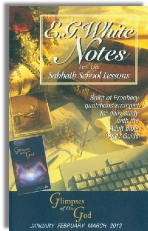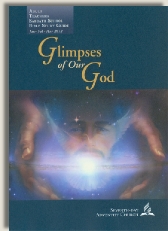|
||||||||||||||
Commentary on "Creation Care"
Day 2: Sunday, February 19, 2012 - The Lobster Liberation Movement!
Summary
The lesson begins with a story about how radical environmentalists have been known to go into restaurants, grab the live lobsters in the tank that are about to be cooked for someone’s meal, and fly by helicopter to the ocean, where they set the critters free. The point of the story appears to be to get the reader to think about the idea that it is entirely possible to demonstrate an unhealthy zealousness to save the environment.
The author also asks the reader to think about why we should even care about preserving the earth when the Bible is clear that it will be destroyed anyway. Then, Romans 1:25 is mentioned. The author says, “Read Romans 1:25. What important message should we take in regard to how we show our concern and care for the creation?”
Observations
It is important to explore the context surrounding Romans 1:25. What was Paul’s intended meaning for this verse:
“Therefore God gave them up in the lusts of their hearts to impurity, to the dishonoring of their bodies among themselves, because they exchanged the truth about God for a lie and worshiped and served the creature rather than the Creator, who is blessed forever! Amen” Romans 1:24-25, ESV.
Note that to read Romans 1:25 in isolation is to read the last half of a sentence. This is irresponsible reading of Scripture! We do not do this in any other piece of literature. We do not read the last half of sentences in isolation and impose whatever meaning we wish, replacing the original meaning that the author intended. To give even more context, we need widen our focus and read Romans 1-3. I encourage you to sit down and read Romans 1-3 in one sitting. Nothing in the content of these chapters suggests that Paul wanted to say anything about the topic of creation care. Rather, the overarching framework of these chapters is to show the reader the the absolute, destitute state of the human race outside of the saving work of Jesus. From the context of verse 24, the word “creature” in verse 25 most likely does not refer to taking care of animals or creation. It means that people were turning their lusts toward individuals of their same sex (or perhaps animals) and they did this because God gave them over to their sinful lusts. In other words, they are under the curse of God Himself. This is serious business and it goes way beyond the trite story of the lobster liberator. The lobster liberation 'issue’ pales in comparison to what we are facing without Christ—under the wrath and punishment of a holy God (Romans 1:18). The whole message of the book of Romans is about how we can be saved from the wrath of God in Christ (Romans 5:9). It is about God’s work in history, and only a small part of the book is devoted to our response to this message (Romans 12-15), and it comes at the end of the book. And in the instructions for Christians in Romans 12-15, there is no guidance given about how to care for the earth.
Interestingly, Romans 8 is the chapter that comes the closest to talking about God’s plan for the natural world:
“For I consider that the sufferings of this present time are not worth comparing with the glory that is to be revealed to us. For the creation waits with eager longing for the revealing of the sons of God. For the creation was subjected to futility, not willingly, but because of him who subjected it, in hope that the creation itself will be set free from its bondage to corruption and obtain the freedom of the glory of the children of God. For we know that the whole creation has been groaning together in the pains of childbirth until now. And not only the creation, but we ourselves, who have the firstfruits of the Spirit, groan inwardly as we wait eagerly for adoption as sons, the redemption of our bodies. For in this hope we were saved. Now hope that is seen is not hope. For who hopes for what he sees? But if we hope for what we do not see, we wait for it with patience" (vs. 18-25; ESV).
In particular, verses 19-22 indicate that all creation is suffering under sin, waiting for God to redeem it. This indicates that God cares for His whole creation. This is why true followers of Jesus do not go around selfishly, needlessly trashing the earth. They love all of God’s creation because He loves it.
Copyright 2012 BibleStudiesForAdventists.com. All rights reserved. Revised January 24, 2012. This website is published by Life Assurance Ministries, Glendale, Arizona, USA, the publisher of Proclamation! Magazine. Contact email: BibleStudiesForAdventists@gmail.com.
The Sabbath School Bible Study Guide and the corresponding E.G. White Notes are published by Pacific Press Publishing Association, which is owned and operated by the Seventh-day Adventist church. The current quarter's editions are pictured above.
Official Adventist Resources
Standard Edition Study Guide Week 8
Teacher's Edition Study Guide Week 8
Easy Reading Edition Study Guide Wk 8
Search the Complete Published Ellen G. White Writings
Please Support This Project


